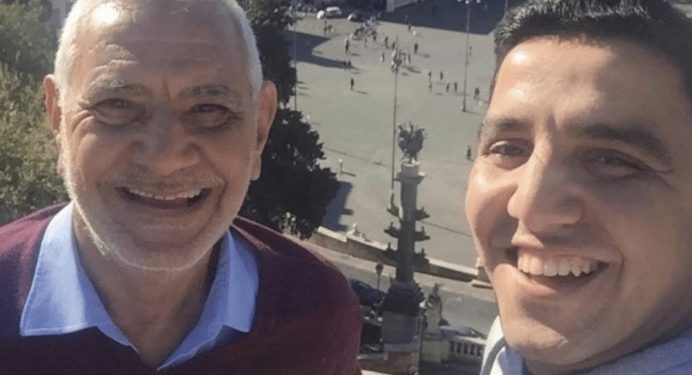In a development highlighting the ongoing crackdown on political dissent in Egypt, authorities have detained Ahmed Abdel Moneim Aboul Fotouh, son of prominent opposition figure and former presidential candidate Abdel Moneim Aboul Fotouh, to enforce a ten-year prison sentence handed down in absentia. This comes despite his submission of a formal request for retrial under Egyptian law.
Human rights lawyer Khaled Ali confirmed that Ahmed was taken into custody last Wednesday while renewing his vehicle registration at the Qatamiya traffic department. He has since been transferred to the 10th of Ramadan – Rehabilitation 2 prison, located east of Cairo. His family was allowed to deliver a care package, and the first in-person family visit has been scheduled for 28 April.
Upon his detention, Ahmed submitted an official request for a retrial to the Fifth Settlement Prosecution Office. In accordance with legal norms, such a request should suspend the execution of the sentence until the case is reheard in court. However, the Emergency State Security Criminal Court – Third Circuit (Terrorism) has yet to schedule a session for the retrial.
Ahmed’s conviction stems from the same politically motivated case in which his father was sentenced to 15 years in prison in 2022, on charges including “spreading false information” and “joining a terrorist organisation.” These charges are widely regarded by rights groups as overly broad and used to suppress peaceful dissent.
Ali also reported that for nearly 24 hours, neither Ahmed’s family nor his lawyers were informed of his whereabouts following the arrest, raising concerns over the legality and conditions of his detention. The delay in disclosure violated his right to access legal representation and to notify his family, fundamental protections under both Egyptian and international law.
The trial of Abdel Moneim Aboul Fotouh, head of the Strong Egypt Party, was part of a broader case involving several opposition figures. It has drawn widespread criticism from rights groups for lacking the minimum standards of a fair trial and for relying on Egypt’s counter-terrorism legislation to silence dissent.
Egypt’s judicial system has come under increasing scrutiny for the routine use of in-absentia convictions, prolonged pretrial detention, and trials in emergency courts that do not allow appeals. Human rights defenders warn that the ongoing imprisonment of political opponents, including family members of dissidents, reflects a strategy of intimidation and collective punishment.
The detention of Ahmed Aboul Fotouh despite his legal appeal highlights the lack of judicial independence in politically sensitive cases. Rights organisations continue to call for the immediate release of all individuals imprisoned for exercising their right to free expression and for sweeping reforms to Egypt’s criminal justice system to ensure due process and accountability.


























